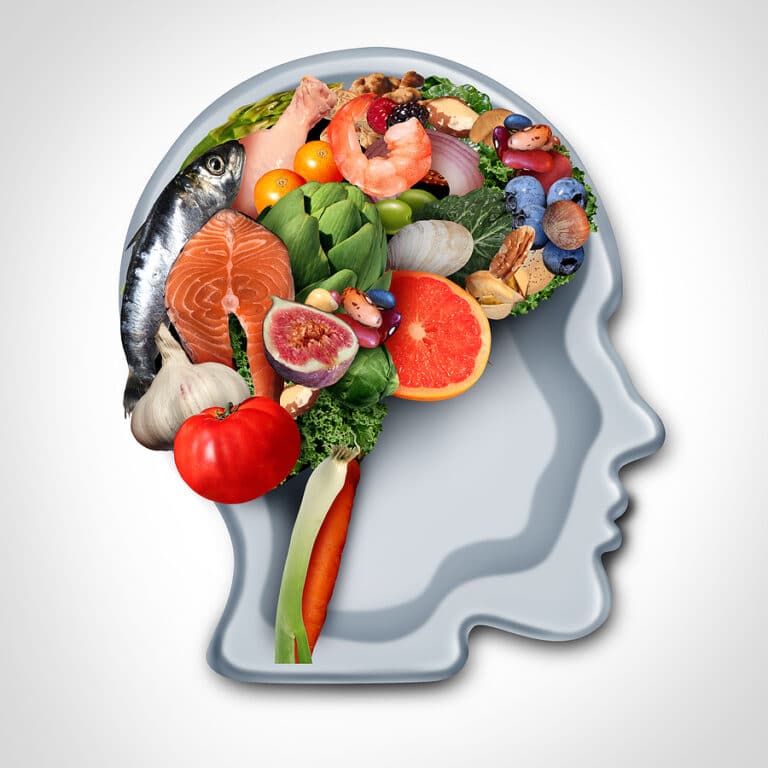Researchers have found that what a person eats can have an effect on how their dementia or Alzheimer’s disease progresses. Some foods have been found to have positive benefits for those who have Alzheimer’s disease and as your loved one’s caregiver, you look to find the best you can give to your loved one.
Sometimes just getting your loved one to eat can be a challenge, one that an Senior nutrition provider can help you with. Senior nutrition providers are trained in many techniques to encourage your loved one to live and function to the best of her ability, including eating the calories she needs.
Besides encouraging your loved one with dementia to eat enough, it’s also important to provide her with healthy options that she’ll not only enjoy but will also help with overall health and can even provide benefits to someone living with the effects and symptoms of Alzheimer’s disease.
Here are six foods you can work on introducing to your loved one and the benefits that they provide.
Fish
Fish are a rich source of many minerals and vitamins a person needs to stay healthy. The nice thing about fish is that it is also easy to eat, without having too much chewing, and can be a nice mild flavor to add to meals if your loved one has stopped enjoying overly seasoned food. One great vitamin most fish contain is Vitamin B3, which is essential for brain and nervous system health.
Berries
Berries are great for many dementia patients as they are packed full of vitamins and antioxidants, plus they taste delicious, and are easily eaten independently. They can be added to foods like oatmeal or yogurt to sweeten them up and their bright colors may stimulate your loved one’s appetite. In fact, regular consumption of blueberries may help your loved one slow down the loss of brain function.
Beans and legumes
Plant proteins can help support memory in older adults. They can also help supplement protein if your loved one struggles with chewing tougher meats like chicken or beef. Have your senior nutrition provider help you find recipes that are high in plant proteins to help your loved one stay healthy and keep her memories alive.
Probiotic foods
Foods like yogurt, sauerkraut, and kombucha can help dementia patients digest and absorb nutrients from other foods. They also positively affect the gut bacteria, helping in elimination.
Coffee and Tea
While you may not think of coffee and tea as great drinks for Alzheimer’s patients, they can actually help with mild cognitive impairment. With moderation, even caffeine can help your loved one. Tea has some great health benefits as well. Tea can reduce oxidative stress which plays a role in dementia. Its anti-inflammatory properties help to improve overall health.
Chocolate
It’s nice when something sweet and delicious is also good for you! Like tea, cocoa also has anti-inflammatory antioxidants which support brain function. So, if your loved one loves chocolate, let her enjoy some every now and then. A little sweetness goes a long way.
If you or an aging loved one are considering the assistance of an senior nutrition in Reisterstown, MD please contact the caring staff at Renaissance Adult Medical Center. Call (443) 501-9500
Renaissance Adult Medical Center Provides Senior Socialization in a Medical Adult Day Care Center in Baltimore City, Baltimore County (Pikesville, Towson, Owings Mills, Catonsville, Reisterstown, Dundalk, Essex), Howard County (Columbia, Ellicott City, Elkridge, Laurel), and in many other counties and cities of Maryland.
- Seniors, Skin Cancer, and Medical Adult Day Care - April 22, 2025
- Getting Help with Diabetes from Nursing Care at Adult Day Health Care - April 10, 2025
- What Should Seniors Do to Focus on a Balanced Diet? - March 24, 2025

